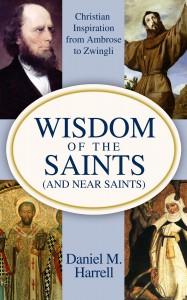Today’s guest post comes from Chris Argo, one of an excellent class of students from Bethel Seminary who recently studied the intersection between theology and science.
Over the last week, several events have reminded me of two certainties regarding humanity. First, humans are mortal. The other day, a lay elder of our church had a stroke on her way to work. Her incapacitation led to a violent wreck on the interstate. While she sustained only a broken clavicle, the head bleed caused by the stroke has left her in a comatose state. This event reminds me that illnesses, accidents, and ultimately death are no respecters of persons.
Second, humans are depraved. Immoral behaviors, evil acts, disregard for the living, and a clear perversion of morality is evident throughout human history. Just this week, the news headlines include sexual assault allegations against a professional athlete, a mass school stabbing, and stories of the physical and sexual abuse of children. Hopefully none of us engage in depravity on this level. However, I feel certain all of us recognize our own depraved shortcomings.
Many Christians trace the universal and self-evident problems of death and depravity to Adam. Based largely on a traditional interpretation of Romans 5, the common Christian understanding holds that Adam introduced sin and death into the world. Furthermore, all humanity inherits sin and death from this first human. However, scientific evidence increasingly supports evolutionary creation thus challenging the existence of an historical Adam as the progenitor of the human race.
In his book, The Evolution of Adam, Peter Enns raises hermeneutical challenges to the necessity of an historical Adam. While a full exploration of Enns’ approach is beyond the scope of this post, the crux of his argument is that Paul is an ancient interpreter who employs the scientific understandings and hermeneutical conventions of his day. In addition, Paul’s understanding of Adam is shaped by the reality of the death and resurrection of Jesus. Enns argues that these factors led Paul to develop a “culturally assumed explanation for what a primordial man had to do with causing the reign of death and sin in the world” (Enns, 124).
Enns concludes that the absence of a historical Adam does not compromise the core elements of the gospel message. The reality of death, humanity’s fallenness and sinfulness, and our need of a Savior, remains universal and self-evident. Precisely how these events unfolded, down to the smallest detail, would be hard to say from the creation story of Genesis, especially if we embrace evolutionary creation, or understand the Genesis story as an ANE cosmogony and theological story.
It seems to me that Enns is proposing an incarnational hermeneutic where God revealed what the recipients of that revelation could understand, always within their social, cultural, religious, and scientific contexts. Therefore, all Old Testament and New Testament authors would interpret previous Scriptures through their current understandings.
This might also mean that in His incarnation, a part of the Eternal Son’s surrender of omniscience included His knowledge of all past time, including creation. Christ would then be dependent on special revelation from the Father to know anything other than what He had been taught in synagogue school and from the Hebrew Scriptures. Where He received no special revelation knowledge, Christ would believe what His contemporaries believed. The incarnational approach results in a theory of inspiration that is broad enough to encompass the original authors, writing incarnationally, followed by future editorial efforts.
Over time, the church has modified her understanding of women in ministry, divorce and remarriage, eschatology, and other doctrines. If we were to fully embrace an incarnational hermeneutic for the reading of Scripture, what other long-standing traditions and doctrines, besides creationism and an historical Adam, might be challenged?











